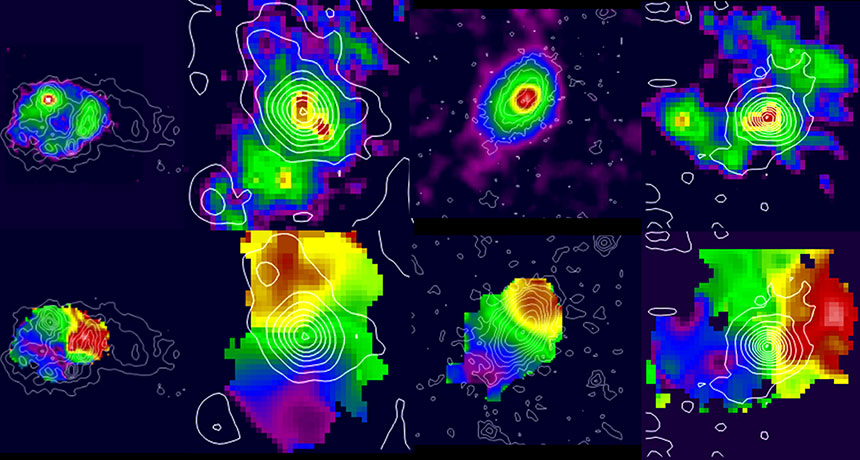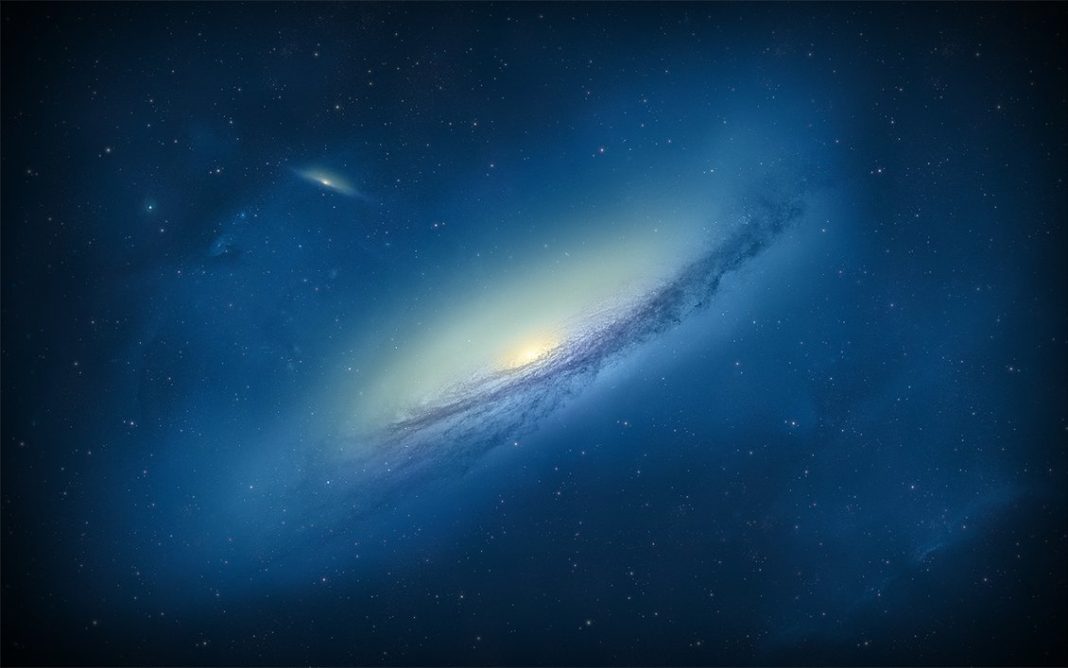Recent observations have led astronomers to believe that very distant galaxies have very little dark matter. One indication of this, confirmed by Reinhard Genzel, is that stars in the outer regions of some far away galaxies move much slower than those closer to the center, thus indicating a presence of dark matter.
At the opposite end of the scale, stars that orbit the Milky Way and another close by galaxies, move too fast for their velocities. Astronomers originally thought that by studying the nearby galaxies as a point of reference they would be better equipped to study those far away. But that turned out not to be the case at all as the stars they found within them behaved completely different to one another.

A galactic rotation curve is basically the plot of the stars’ velocities about their distances from the galaxy’s center, and in the team’s recent paper they show the curves of more than 100 distant galaxies, some of which appeared the same as they did several billion years ago. As stars get farther from their galactic center, their velocities diminish. Genzel explains, “The data provide a strong indication that falling curves are common in this population of early galaxies.”
There are several different theories as to the reason behind the falling rotation curves, but as of yet, there doesn’t seem to be a clear, correct answer. Genzel and colleagues’ theory suggests that rotation curves fall off because of the extra material bought into the inner regions of the galaxy by the turbulent streams of gas. As the gas continues to build up, dark matter is left on the outskirts. Dark matter may also be dragged away from the inner regions by winds and exploding stars flowing from black holes. Or, dark matter could be lurking hundreds of thousands of light years way, while the gas and stars in these early galaxies interact only tens of thousands lights years away.
Genzel says, “Dark matter must be there. Without it, there are no galaxies and no ‘us,’ so we need to understand its nature and distribution to explain what we see in the universe.” He says the way in which the gas and stars move in these far distant galaxies is similar to other elliptical galaxies close by. So, for that reason, he concludes that irregular distant galaxies must be progenitors of elliptical galaxies in the local universe.
More News to Read











